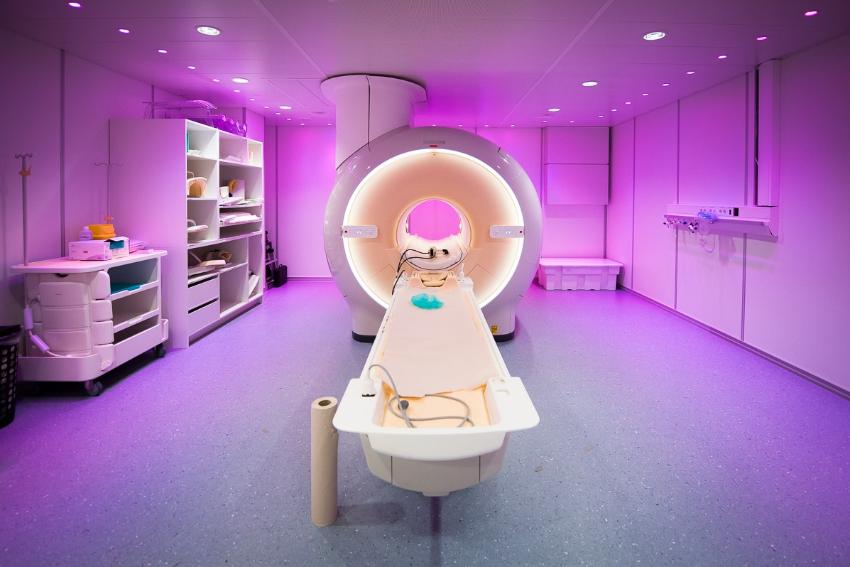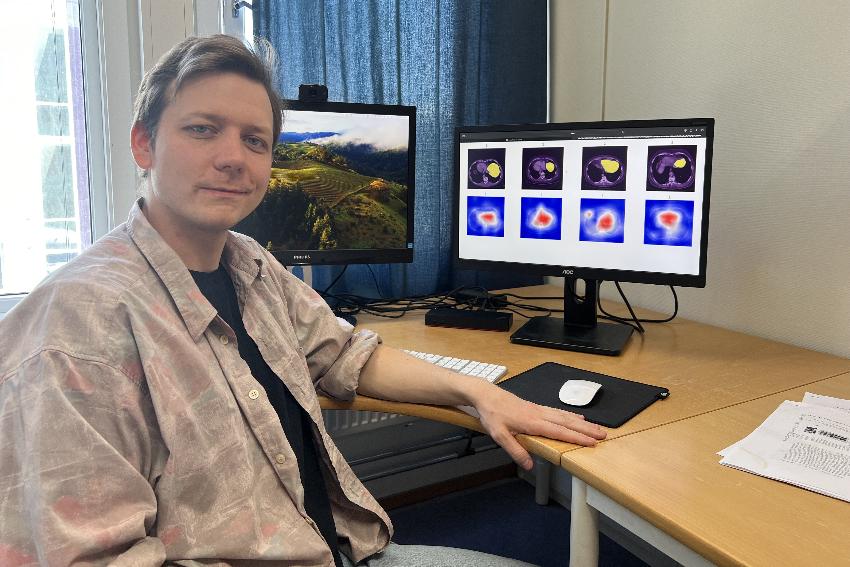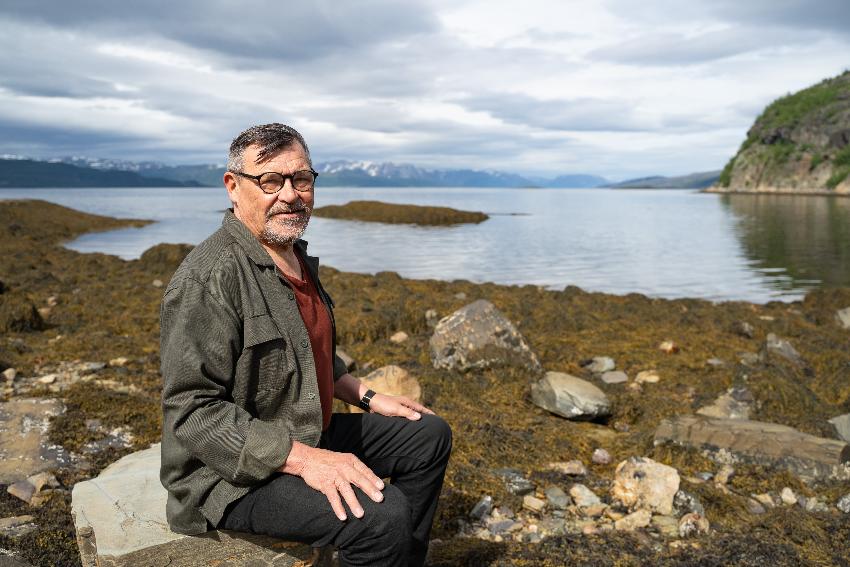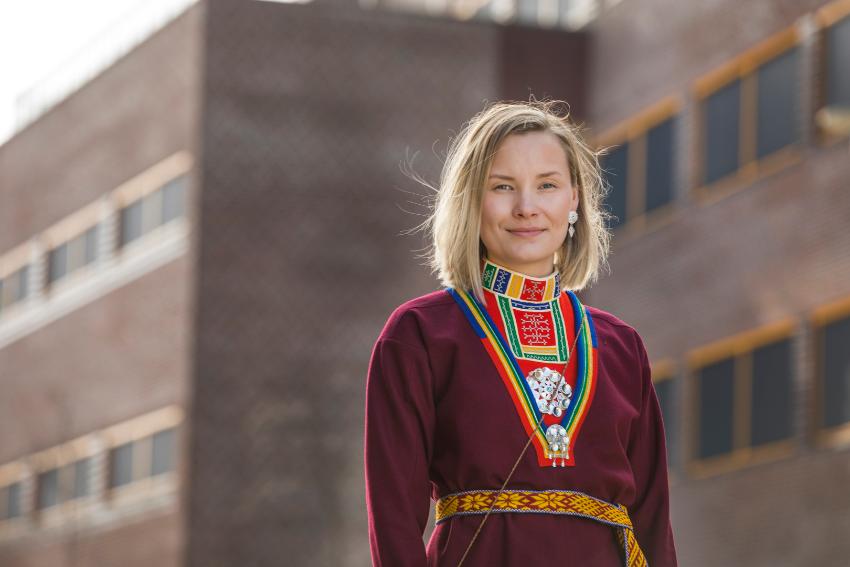"A tsunami of change that is on the way"
How can music strengthen mental health in a time of major societal changes? The Music Conservatory at UiT, in collaboration with European partners, will explore what this question entails in a new interdisciplinary project.
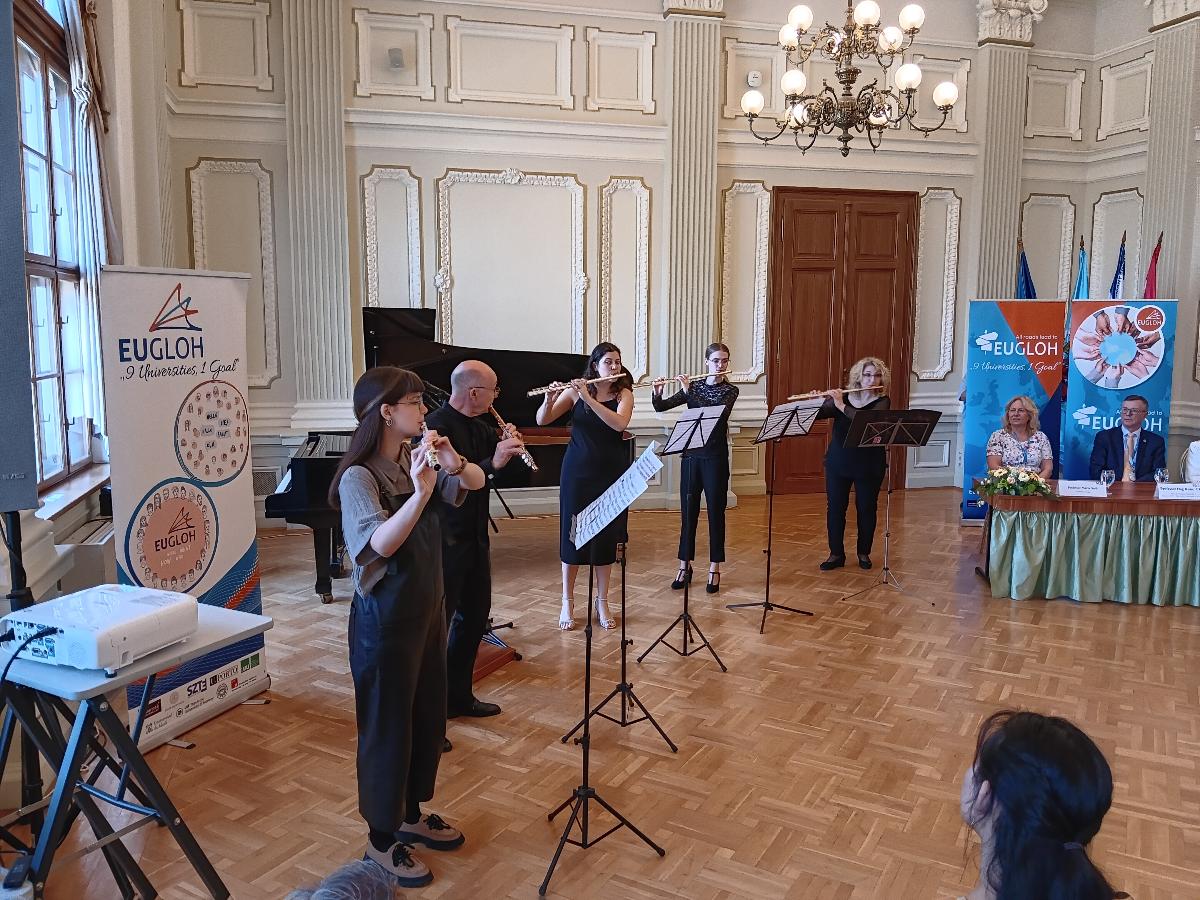
Lars Asbjørnsen, professor at the Music Conservatory at UiT, wishes to involve colleagues and music students who are affiliated with the university alliance EUGLOH in the project. This alliance has nine partner universities with the goal of promoting research and education that generates new knowledge about how we can facilitate better health on a global scale.
At the EUGLOH summit in Szeged, which was recently held in June, Asbjørnsen met with a colleague from the University of Szeged. The two parties decided that they will start the project in 2025, where students at the bachelor's and master's levels, as well as doctoral candidates, can participate in academic exchanges. At the summit, Asbjørnsen performed classical music along with music students from Norway, Serbia, and Hungary. Over the summer, Asbjørnsen will also discuss with colleagues at Lund University and the University of Novi Sad about their potential contributions.
We will then look more closely at what the relationship between classical music and the audience is and what role classical music will play in society. Is it just decoration, or does it have a driving force?
Asbjørnsen believes that the times we live in, with major political shifts and changes in lifestyles related to pandemics, war, and climate change, create a need to redefine our relationship with art dissemination and art experiences.
“Everything within our field is changing. There is a tsunami of change on the way. Our project will find new ways to communicate. We will then look more closely at what the relationship between classical music and the audience is and what role classical music will play in society. Is it just decoration, or does it have a driving force? Can art and music be a catalyst for changes in society?” asks Asbjørnsen.
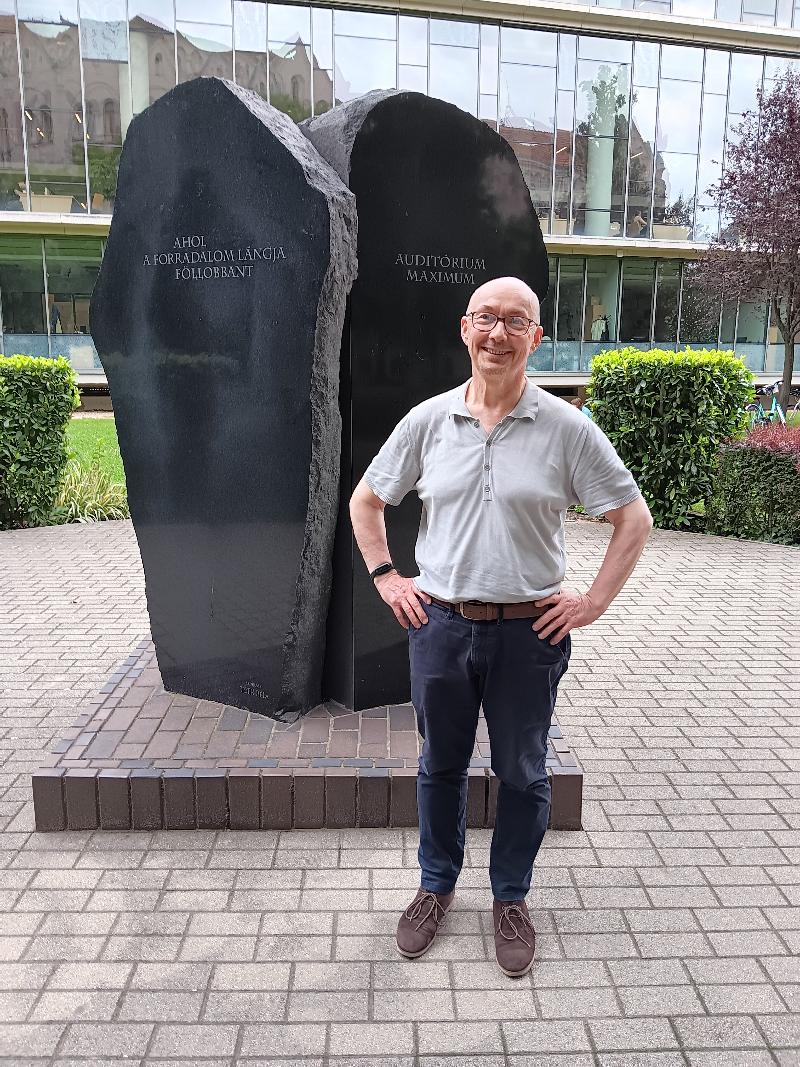
Inclusive Therapy and Art Mediation
UiT has already initiated a EUGLOH project, in collaboration with Lund University, focusing on the relationship between art and health. In the course, which will be held in the fall of 2024, bachelor students in health sciences are trained in how art mediation can be an important tool for improving patients' everyday lives.
For Asbjørnsen, music can also have a similarly crucial health function, especially when it comes to combating loneliness and exclusion.
“People can become sick from not being able to express themselves artistically. It's something we all do. Some do it musically by being in a band or a corps, others draw and scribble. Some are very concerned with the clothes they wear or decorating their homes. All these things are absolutely necessary for us, we need it, all of us”, says Asbjørnsen.
Asbjørnsen points out that music mediation and the performance of music are important foundations in music pedagogy and music therapy. He considers these disciplines as fields of work with great societal value. Therefore, he wants to strengthen the students' understanding in this area.
“Many of the students become pedagogically active in one way or another. We need a stronger cross-aesthetic collaboration between the arts in this area”, Asbjørnsen points out.
EUGLOH
- It is an alliance between nine European universities that facilitates mobility related to research, teaching, and innovation.
- The alliance supports interdisciplinary activities, projects, and programmes that address global health challenges, which also extend beyond the medical sector.
- EUGLOH covers expenses for travel and accommodation for its own students and staff who wish to physically participate in courses, workshops, summer schools, seminars, and conferences at other partner universities.
As the world becomes increasingly digitalized, where new arenas are developed that replace physical attendance, Asbjørnsen also believes this should have consequences for how music education is structured. It has traditionally had a conserving function, to carry forward a cultural heritage. He believes the time has come to think in entirely new ways. Both in terms of music therapy and music mediation, he wants to create opportunities and arenas to reflect and experience the world in a new way through art and music.
“If the audience becomes increasingly isolated, the aspects of sensuality, cohesion, and companionship completely disappear. What does that do to their self-perception and their relationship to art? These are questions that we have thought too little about. We constantly feel that we do not have enough time. As musicians, we are aware that we have never had as much music available as now in our digital world. This is something we as a society must take into account”, he says.
Changing Mentalities
Asbjørnsen sees EUGLOH's facilitation of an expanded concept of health, where a social and societal context is included, as a natural perspective that can also be adopted within art and music. In such a context, he wishes to collaborate with professional environments with medical knowledge, or with sociologists and social anthropologists.
The major changes that are on the way, Asbjørnsen believes, will also affect what we mean by the concept of cultural education. Asbjørnsen thinks there have been significant changes in the mentality of students in this area.
Asbjørnsen refers to a famous quote from the novel The Leopard by Giuseppe Tomasi di Lampedusa: "If we want everything to stay as it is, it is necessary that everything should change."
“This also applies to the Music Conservatory. If we are to continue to be present and be who we are, we need to change. Now we must fight to get the students' attention, we are fully aware of how valuable their cultural knowledge is. Then the synergies we create together with our European partners can be decisive”, concludes Asbjørnsen.
